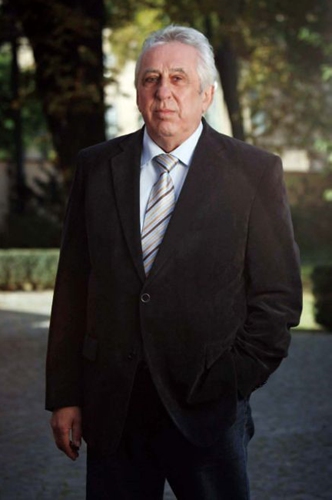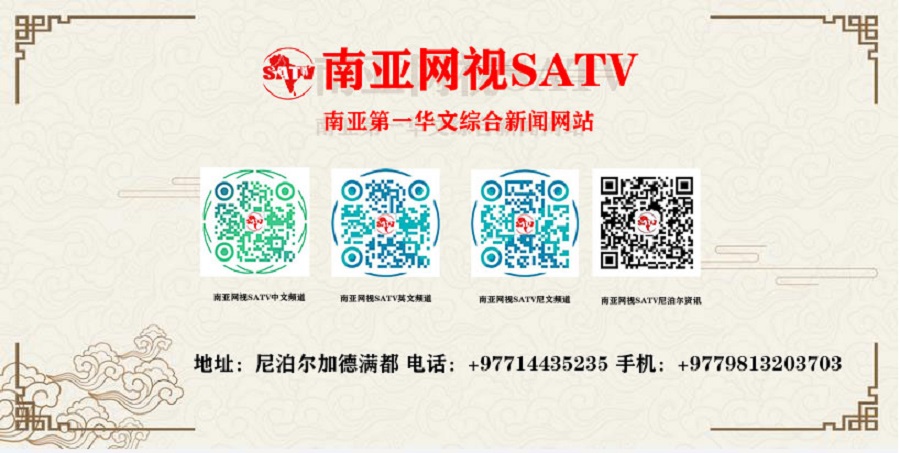In early 2018, a book entitled China, Wie ich es sehe (China, as I See it) was launched in Germany, which quickly caught public eye and resonated widely among readers. The initial release of 7,000 copies were soon sold out, requiring a follow-up print run. In August 2019, just as the Chinese people were about to celebrate the 70th anniversary of the founding of the People's Republic of China, the Chinese edition of the book made its debut in China and was highly rated by the academic community.

Egon Krenz
The author of the book, Egon Krenz, is the former General Secretary of the Socialist Unity Party of Germany (SED) and Chairman of the Council of State of the German Democratic Republic (GDR). Krenz has deep ties and knowledge of China, which can be traced back to his work on normalizing the GDR's relations with China. He has visited China nine times since late 1980s and witnessed China's development and huge changes over more than three decades of reform and opening-up. He has long followed and supported China's reform and development. He is very keen on presenting a real China to the rest of the world. He has long been a good friend of the Chinese people.
As the last leader of SED toward the end of the GDR, Krenz experienced the historic fall of the Berlin Wall and witnessed the ebbs and flows of socialist movements in the world. After the reunification of Germany, Krenz reflected on the failure of the GDR's socialist construction, and was amazed by the sweeping and rapid progress of socialism with Chinese characteristics. When the Communist Party of China (CPC) held its 19th National Congress in 2017, Krenz was on a visit to Beijing. The report delivered by General Secretary Xi Jinping to the congress left a deep impression on him and triggered his thoughts.
Krenz views China as a shining example for the world with its sustained effort to find solutions to social issues and contribute to fostering a community with a shared future for mankind in a volatile world. China, as such, serves as a strong source of impetus for world peace and stability. The Western media, including those in Germany, however, have chosen to remain Eurocentric and ideologically biased. Their reporting on China can often be quite misleading and full of disinformation, which deeply frustrated Krenz.
In a demonstration of his friendly sentiment toward China and drawing on the experience of his own political career, Krenz wrote the bookChina, Wie ich es sehe. Based on his first-hand experience in China, he presented a panorama of China's political, economic and social progress in a variety of areas such as infrastructure, science, technology and innovation, urban and rural development, and environmental protection, and explained to the world the 19th CPC National Congress and China's development blueprint for the new era. He hoped that through this book, the German public and the rest of the Western world would have a real idea of what socialism with Chinese characteristics is.
Krenz wrote in his book that China's socialism is about delivering "a better life for everyone." He recalled seeing people dressed monotonously on the streets and roads filled with people on bicycles when he visited China in 1989. Then in each of his subsequent visits, Krenz could feel that the country was taking on a refreshing outlook everywhere he went: the cities in China "thrived with bustling scenes of urban life, well-tended greenery, shopping centers offering an impressive variety of merchandise, and historical tourist attractions." The countryside in China is "verdant with greenery anywhere people set their eyes upon." "Each household lives in a lovely independent house equipped with solar panels on the rooftop." At China's ports, "it is easy to spot numerous cranes, containers, ships, wharves, tankers and rail tracks." China's highways are "very smooth, with no irritating maintenance sites or blocked sections."

A symposium on the launch of China, Wie ich es sehe in Beijing
Some left-wingers in the West misunderstand China's reform and opening-up as a deviation from the socialist line. Krenz commented on such views by emphasizing in his book that the path of socialism with Chinese characteristics is "a socialist path befitting China." Citing the theories of Karl Marx and Friedrich Engels, Krenz argued that China's development model and current policies are in line with the essence of Marxism. He wrote, "I am convinced that the logic of the three-volume Capital, which contains detailed explanations of the process of social development and how it works, supports China's path in the final analysis," and "as long as it serves the well-being of the people, I do not consider the effective harnessing of the laws of the market and relevant capitalist methods a takeover by capitalism."
Krenz hailed socialism with Chinese characteristics as a key component of world socialism and spoke highly of its global significance. He wrote, "the premature assertion that the great socio-political transformation has ceased, that capitalism has taken control of the world, that Marxism has come to its demise and that socialism has been defeated, apparently overlooks the existence of the People's Republic of China." "China has given socialist thought new inspiration," wrote Krenz. The path of socialism with Chinese characteristics offers a new option for developing countries in pursuit of independent development. "China's experience could become textbook material for encouraging other countries in Asia, Africa and Latin America to think about how to shape their own present and future." He suggested that China's Belt and Road Initiative "could replace the currently dominant neo-liberal model of globalization."
The bookChina, Wie ich es sehehighlights Krenz's expectations for socialism with Chinese characteristics. With his rationalist German-styled writing and philosophical reflections, Krenz's book offers a record of the great practice of socialism with Chinese characteristics in the new era and a window for the rest of the world to truly understand China. Though the red stars have dimmed on the European continent, the red flag of socialism stands tall and firm in the East. History has not ended, and will not end. As Krenz said in an interview, "So long as China is still here, so is socialism!"













